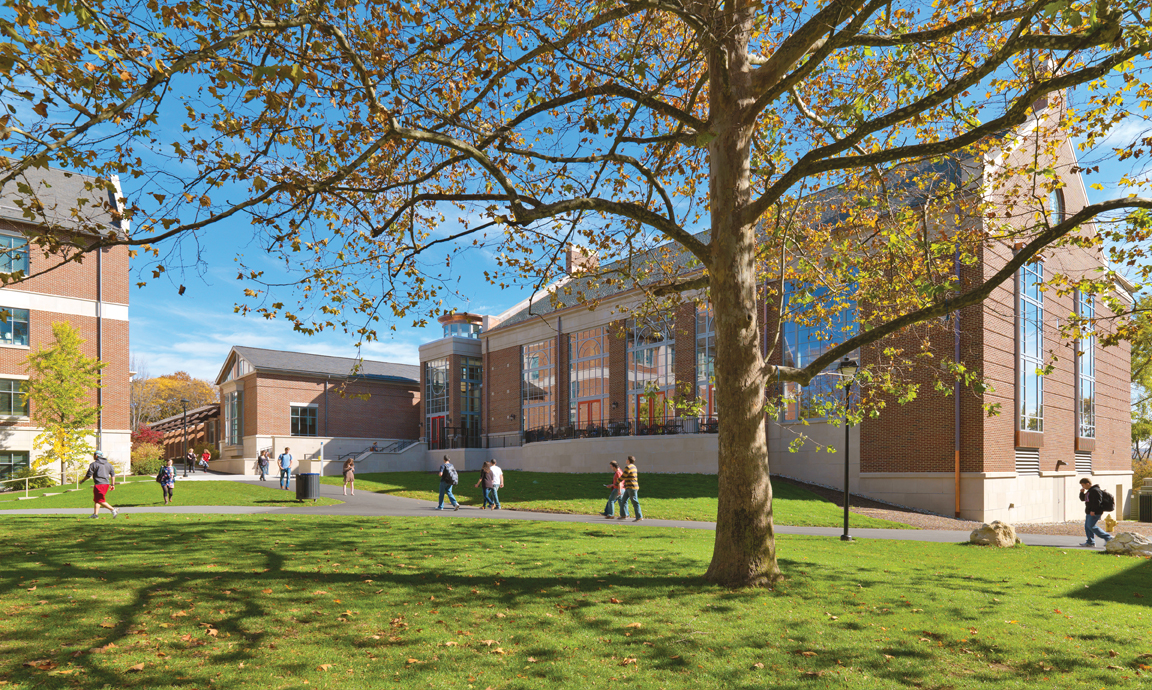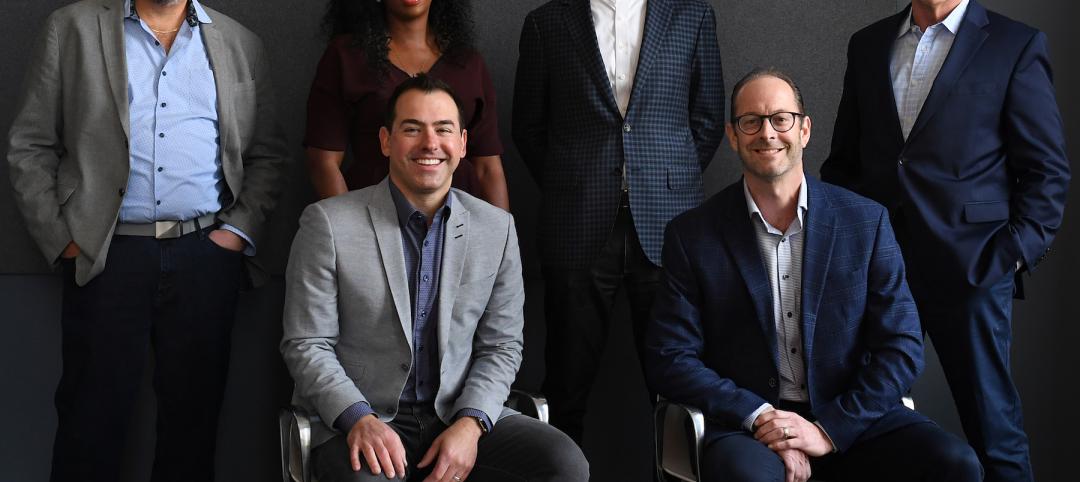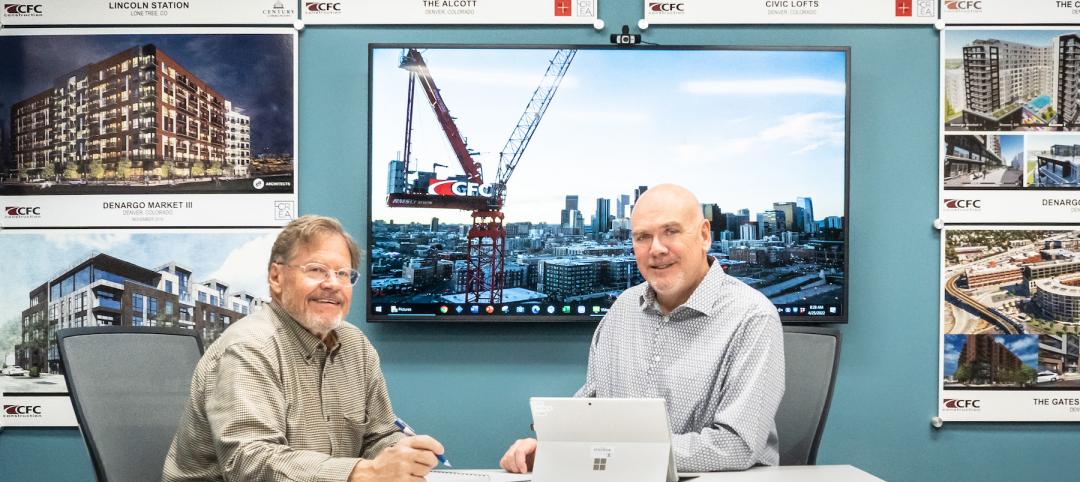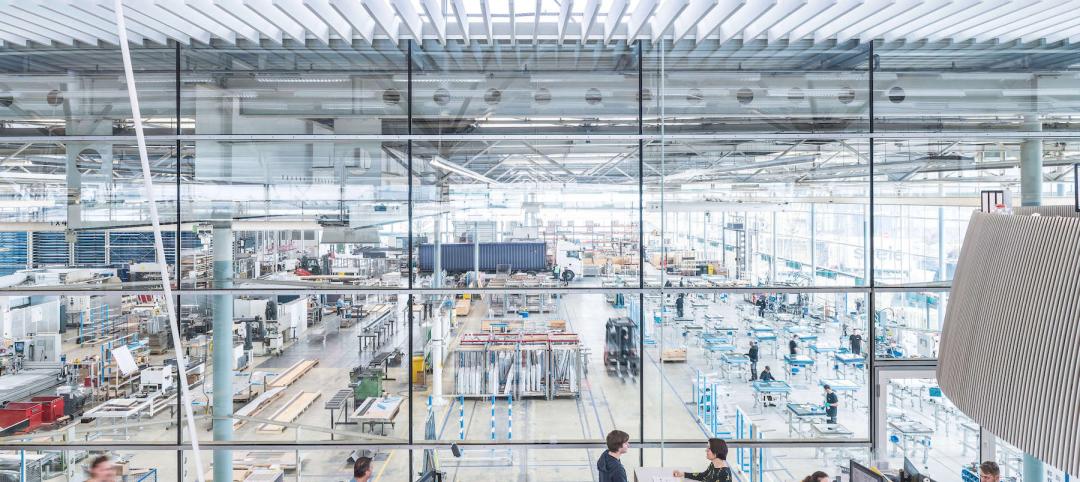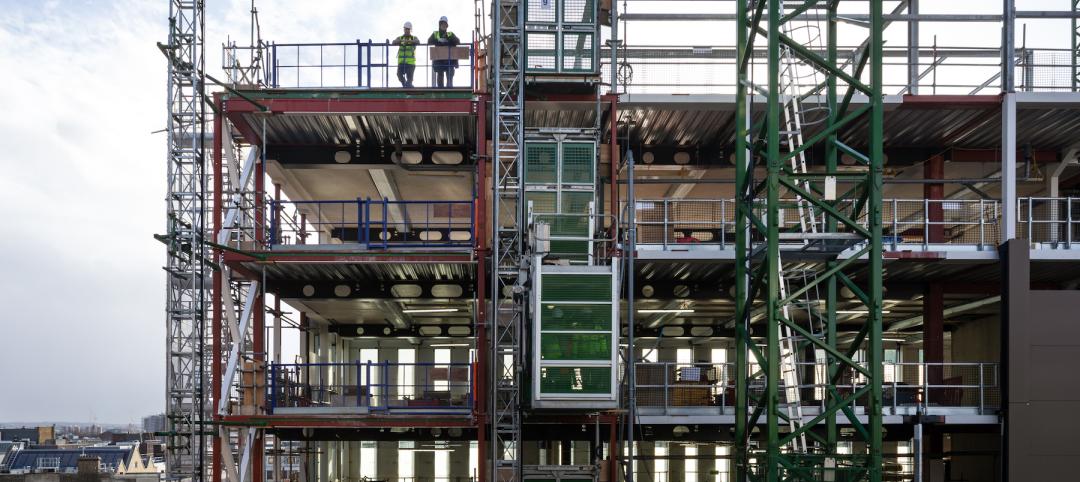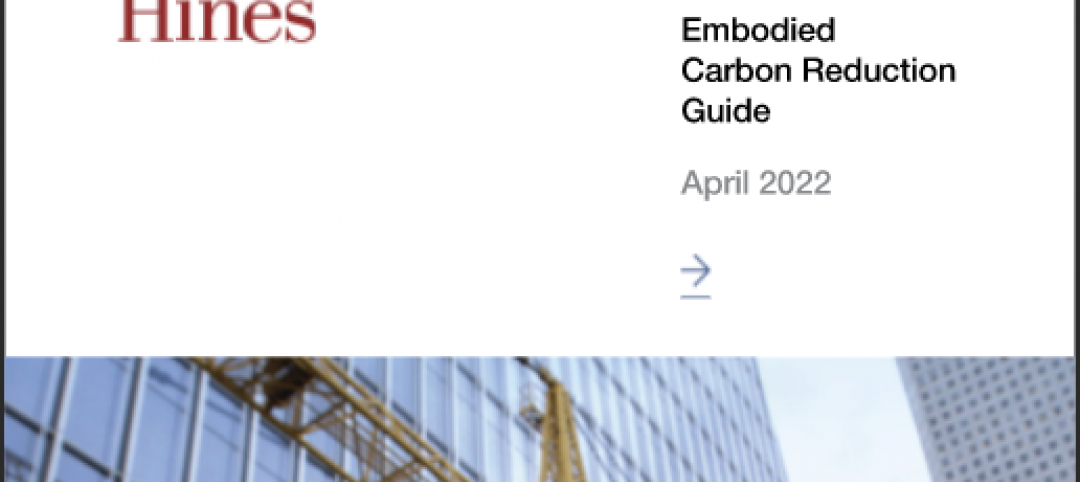At many colleges and universities, the student union serves as the focal point of campus activity. These days, campus planners are increasingly designing student unions as a multifunctional home to fuse student life and recreational activities under one roof.
Two years ago, Muhlenberg College, Allentown, Pa., embarked on a bold expansion and renovation project to dramatically upgrade the outdated Seegers Student Union.
The building was originally constructed in 1960 when enrollment just topped a thousand students. Despite previous expansions and renovations, the 66,000-sf student union was too tired, worn, and undersized to serve as a modern-day campus center for more recent needs of up to 3,300 guests per day.
Ultimately, college officials decided to transform the Seegers Student Union into a contemporary student dining and commons facility to meet the college’s growing, diverse needs.
PROJECT SUMMARY
Seegers Student Union, Muhlenberg College
Allentown, Pa.Building Team
Submitting firm: Bruner/Cott & Associates
Owner/developer: Muhlenberg College
Structural engineer: Barry Isett & Associates
Mechanical engineer: Snyder Hoffman Associated Inc.
General contractor: Alvin H. Butz Inc.General Information
Size: 70,000 sf
Construction cost: $20 million
Construction period: August 2008 to August 2010
Putting The Emphasis on Community Ideals
The Muhlenberg campus is located along a high ridge with a view of the Lehigh Valley. The architectural vocabulary reflects both English and German design traditions.
The 30,000-sf expansion and reconstruction focused on centralizing the Student Life and Student Organization offices, expanding the informal social space, and, most importantly, developing a 600-seat dining facility that could support the strong sense of community within the college.
In an effort to influence design criteria and create a sense of ownership with the Muhlenberg campus population, the Building Team relied on direct and indirect feedback with students, staff, and faculty. “We conducted a number of focus groups and hung a series of comment boards on which students wrote their suggestions, comments, and wishes for the Seegers Student Union,” says Dana Kelly, marketing director with design firm Bruner/Cott & Associates, Cambridge, Mass. “There was a lot of emphasis on the desire to ‘create a living room on campus’ that would serve as a neutral ground for all constituencies.” This factor influenced the social aspects of the design.
Senior staff members from the college served as the Steering Committee and helped clarify the project’s goals. “From an admissions perspective, it was important that the institution respond more deeply to the observances of Jewish students who make up one-third of the student body,” says Glenn Gerchman, director of Seegers Student Union. Maintaining a “strong sense of community” was also crucial. “That’s a characteristic recognized by nearly everyone who walks down Muhlenberg’s academic row,” he says.
Because the Seegers Student Union abuts the principal east-west pathway on the west end of the main quad, students, staff, and faculty were able to track construction progress. Not letting an educational opportunity pass, the Building Team created a Progress Plaza near the construction site where information about the project and its progress was continuously posted, according to Kelly.
Developing The Focal Point on Campus
The Building Team was charged with designing a facility that met a wide range of student dietary requirements and restrictions. One is the Noshery, a new kosher station that has two separate kitchens—one for meat preparation, one for dairy prep. “We believe this is the first fully integrated kosher station on a college campus,” says Kelly. “Integrated meaning that it is not segregated from the other stations like other kosher stations.”
The new food gallery also brings the kitchen out in the open. Food is prepared in a display-cooking format in front of the students, which brings food to students faster while reducing waste and labor cost.
“The response to this format has been tremendous,” says Gerchman. “The meal plan counts are up, and the students have responded favorably all around.”
The reconstructed 600-seat dining room has become a hearthstone visible from the surrounding campus. It can also host a wide variety of campus events. The Light Lounge serves as an active living room, while an outdoor terrace overlooking Brown Mall rounds out the amenities of the structure.
Designed for LEED Gold guidelines but not LEED-certified, the Seegers Student Union incorporates multiple sustainable measures: low-VOC paints and adhesives, recycled tile and carpet, renewable lumber and millwork, a spray-foam insulated building envelope, and integral air and vapor barriers.
“The new Seegers Student Union now completes a new quadrangle on the campus, providing students with an important connection to the outdoors,” says Kelly.
Seegers Student Union defines a new campus space for Muhlenberg College that reinforces the unified structure of the campus. The building balances the institutional ambitions of the college with a desire to be aesthetically and socially innovative. +
Delivery method: Design-bid-build
Related Stories
Legislation | May 4, 2022
Washington is first state to mandate all-electric heat for new large buildings
Washington recently became the first state to require all electric heat for new buildings.
Building Team | May 4, 2022
Mancini Acquires Gertler & Wente Architects, Expanding the Firm's Opportunities in New Market Sectors
National design firm Mancini Duffy - with a 100+-year-old history and tech-forward approach based in New York City - announces the acquisition of Gertler & Wente Architects to further expand its footprint in the healthcare, multi-family residential, restoration, institutional, and religious sectors.
Contractors | May 4, 2022
CFC Construction names Pat Smith president
CFC Construction is proud to announce that Pat Smith has been promoted to President of the Colorado-based general contractor.
Sponsored | Healthcare Facilities | May 3, 2022
Planning for hospital campus access that works for people
This course defines the elements of hospital campus access that are essential to promoting the efficient, stress-free movement of patients, staff, family, and visitors. Campus access elements include signage and wayfinding, parking facilities, transportation demand management, shuttle buses, curb access, valet parking management, roadways, and pedestrian walkways.
Sponsored | BD+C University Course | May 3, 2022
For glass openings, how big is too big?
Advances in glazing materials and glass building systems offer a seemingly unlimited horizon for not only glass performance, but also for the size and extent of these light, transparent forms. Both for enclosures and for indoor environments, novel products and assemblies allow for more glass and less opaque structure—often in places that previously limited their use.
Architects | May 3, 2022
A U.K.-based design firm flaunts industrialized construction as it expands into U.S.
Bryden Wood wants to set up a network for manufactured components for repeatable building types.
Codes and Standards | May 3, 2022
American Institute of Steel Construction updates environmental product declarations
The American Institute of Steel Construction has released updated environmental product declarations (EPDs) “to help designers and building owners design more environmentally friendly buildings and bridges,” according to an AISC news release.
Education Facilities | May 2, 2022
Texas School for the Deaf campus gateway enhances sense of belonging for deaf community
The recently completed Texas School for the Deaf Administration and Welcome Center and Early Learning Center, at the state’s oldest continuously operating public school, was designed to foster a sense of belonging for the deaf community.
Codes and Standards | May 2, 2022
Developer Hines, engineer MKA develop free embodied carbon reduction guide
Real estate management and investment firm Hines has released the Hines Embodied Carbon Reduction Guide. The free guide, produced with Magnusson Klemencic Associates (MKA), is the result of a two-year effort, relying on MKA’s industry-leading knowledge of carbon accounting and involvement in programs such as the Embodied Carbon in Construction Calculator (EC3) Tool.
Building Team | May 2, 2022
HED and VAI announce merger to bring strategic expertise and drive community impact in Dallas
HED (Harley Ellis Devereaux), a leading national architecture and engineering firm, today announced a merger with award-winning, Dallas-based VAI Architects Incorporated (VAI).


